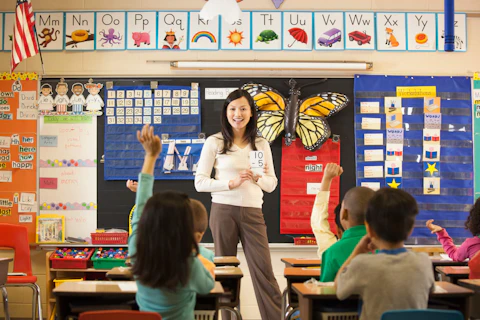Kate Doctor’s four year old did a year of virtual preschool. It did not go well.
Though the long-term effects are still unknown, there is no question that pandemic-induced virtual learning left many students behind. As schools across the state reopen for the new academic year, many are dedicating time to reeducating students on what they may have missed last year.
This has exacerbated problems that already existed with special education in America. ParentsTogether, a national organization for parents, conducted a survey that found nearly 40% of parents say their child’s learning plan isn’t being followed. The survey also found special education students to be twice as likely as their peers to be doing little-to-no remote learning.
In February, the General Assembly passed legislation that directed the state’s Department of Education and Board of Education “to improve the administration and oversight of special education across the Commonwealth.” As the pandemic made everything harder, children with special needs and their parents felt even more left behind.
That happened for Kate Doctor, mother of three, public school teacher, and special-education advocate.
“Did he improve any skill or learn anything from online preschool?” asks Doctor. “Not. One. Thing. Not one thing.”
As her four year-old son, Harris, enters year two of preschool, Virginia’s public schools return to in-person instruction.
Improving Virtual Learning Standards
“It’s going to be rough,” Doctor said. “But it’s going to be better.”
Last month, the Biden administration allocated over $3B in American Rescue Plan funding to special education, $77.5M of which went to Virginia schools. The money is meant for children ages three through 21 to receive grants to address their needs. Such grants should make early intervention providers and preschools “even stronger than before the pandemic.”
“The law is written that every student has the right to learn in the least restrictive environment, and that’s usually where everybody gets hung up,” said Kate Doctor, parent and advocate. “What’s the least restrictive environment, for this student, that we can serve?”
In addition to raising three children, Doctor is a public school teacher in Chesterfield County. That meant she was teaching while also navigating virtual learning as a parent. For the past year, her house felt more like a school house than a home.
For Harris, virtual preschool meant sitting in front of a screen, watching his teacher identify colors and shapes or host story time. At his age he needs active stimulation, said Doctor, “so, with that, he was like, ‘I’m out.’”
Inclusive Learning Classrooms as a Solution
Prior to the pandemic, Doctor attended inclusive-learning advocacy training at Radford University. She learned that many schools employ a “pull out” method of learning, where children with atypical needs are removed from typical classroom settings. While the teacher-to-student ratio may help, Doctor sees a missed learning opportunity for both student groups.
“It’s that level of empathy, and the sooner we can teach it, the better off we’re all going to be,” Doctor said. “I think these kids learn to become really great cheerleaders, and they also learn to appreciate the little things.”
Doctor is wary of the state’s increased use of “life skills” programs as a replacement for other special education structures. Instead of focusing on reading and math skills, some special education teaches cleaning and cooking.
“I think they’re fabulous,” she said. “You should know some basic skills, but I expect to have to teach my other two kids those things, so I expect to have to teach Harris that, too.”
Doctor sees the value in inclusive learning for typical learners, too. Beyond learning math, reading, and history, she sees an opportunity to explore experiences different from their own.
“I’ve heard amazing things about kids getting excited and cheering because Harris said their name the first time, and they said, ‘He said my name because we’re friends!’ They value human interaction more than they’re going to value ‘I got all the answers right’ if we’re all in this together,” she said.
Back-to-School In an Almost Post-Coronavirus World
Democratic Gov. Ralph Northam in August announced all students, teachers, and staff will be required to wear masks in Virginia.
Doctor doesn’t see the masks as a barrier but an opportunity.
“[Last year] there were just so many medical concerns involved, and it’s exciting, hopefully, the thought that we could do this safely,” Doctor said. “I’m looking forward to, hopefully, getting more sense of community and rallying the troops and getting these issues back on track together.”





